Click on images to enlarge
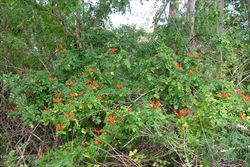
infestation (Photo: Sheldon Navie)

habit (Photo: Sheldon Navie)

older woody stems (Photo: Sheldon Navie)
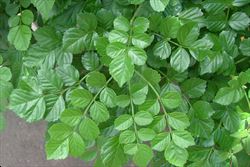
once-compound leaves (Photo: Sheldon Navie)

close-up of leaf with toothed leaflets (Photo: Sheldon Navie)

close-up of leaf underside (Photo: Sheldon Navie)
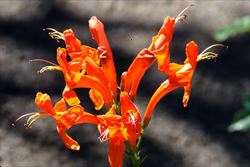
flower cluster (Photo: Forest and Kim Starr, USGS)
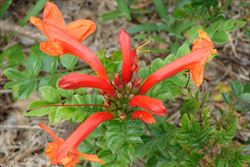
close-up of tubular flowers and flower buds (Photo: Forest and Kim Starr, USGS)
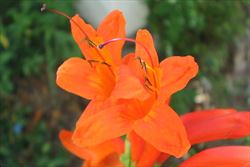
close-up of reddish-orange flowers (Photo: Sheldon Navie)
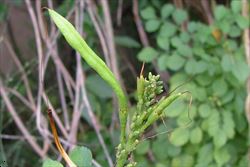
immature fruit (Photo: Sheldon Navie)
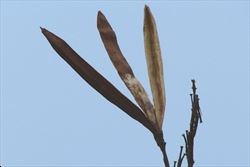
mature fruit (Photo: Forest and Kim Starr, USGS)
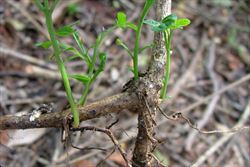
suckering from crown and roots (Photo: Sheldon Navie)
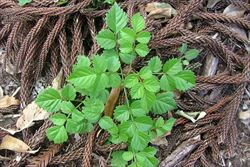
young plant (Photo: Sheldon Navie)
Scientific Name
Tecoma capensis (Thunb.) Lindl.
Synonyms
Bignonia capensis Thunb.Tecomaria capensis (Thunb.) Spach
Family
Bignoniaceae
Common Names
Cape honeysuckle, fire flower, flame vine, red tecoma, tecoma
Origin
Native to southern Africa (i.e. South Africa and Swaziland) and southern Mozambique.
Naturalised Distribution
Widely naturalised in the coastal districts of eastern Australia (i.e. throughout eastern Queensland, in the coastal districts of central and northern New South Wales, and in eastern Victoria). Also naturalised on Norfolk Island and overseas in south-eastern USA (i.e. Florida).
Notes
Cape honeysuckle (Tecoma capensis) is regarded as an environmental weed in Queensland and New South Wales.

